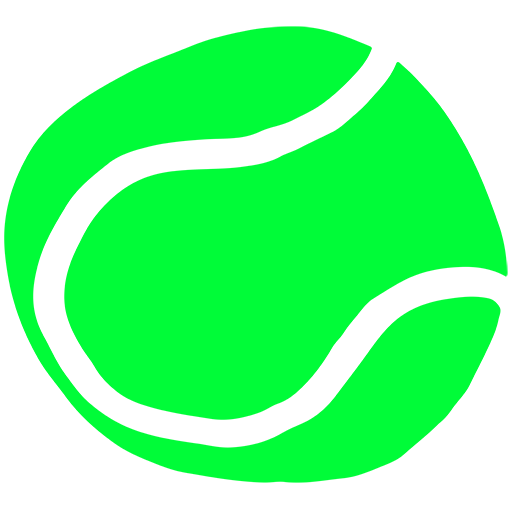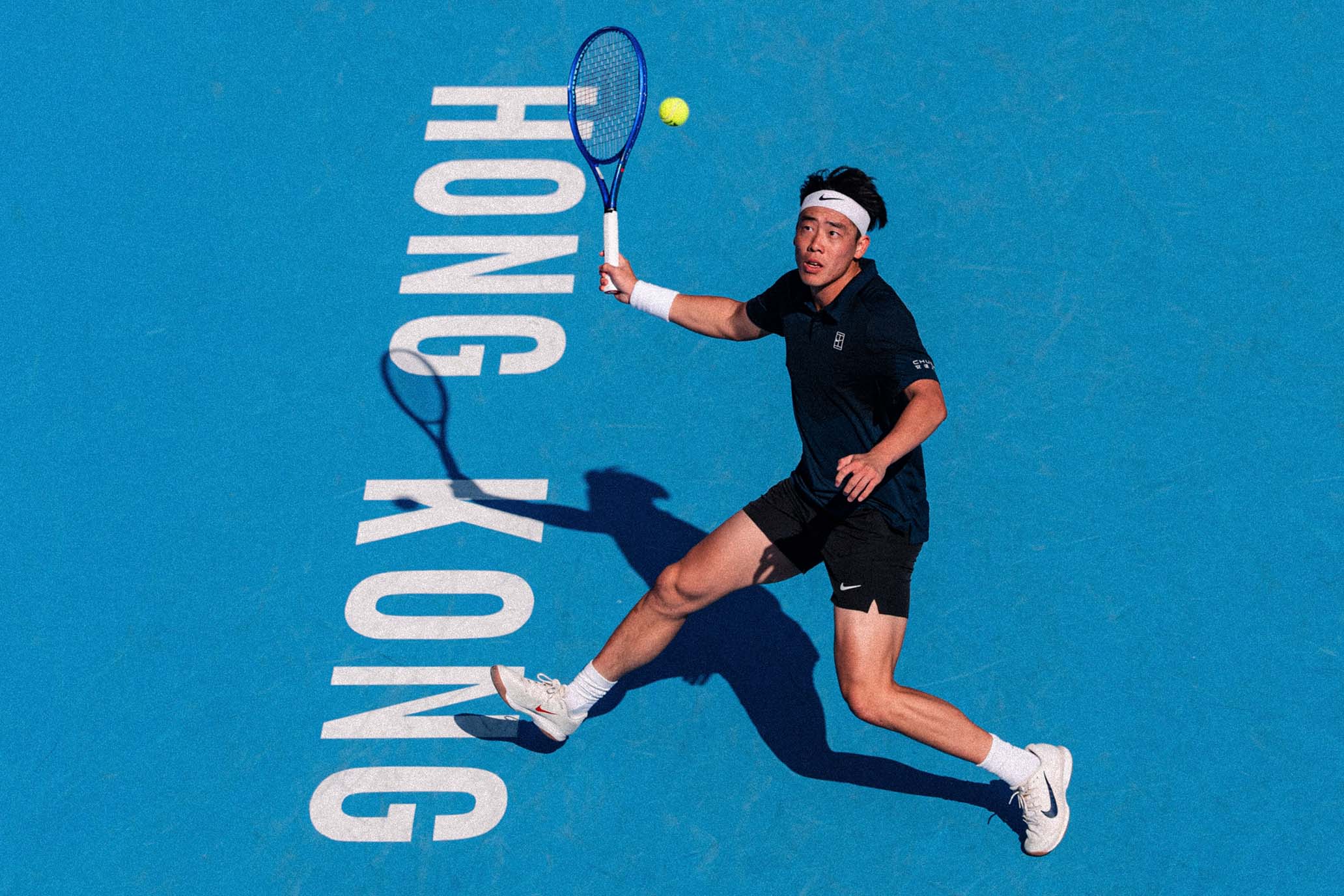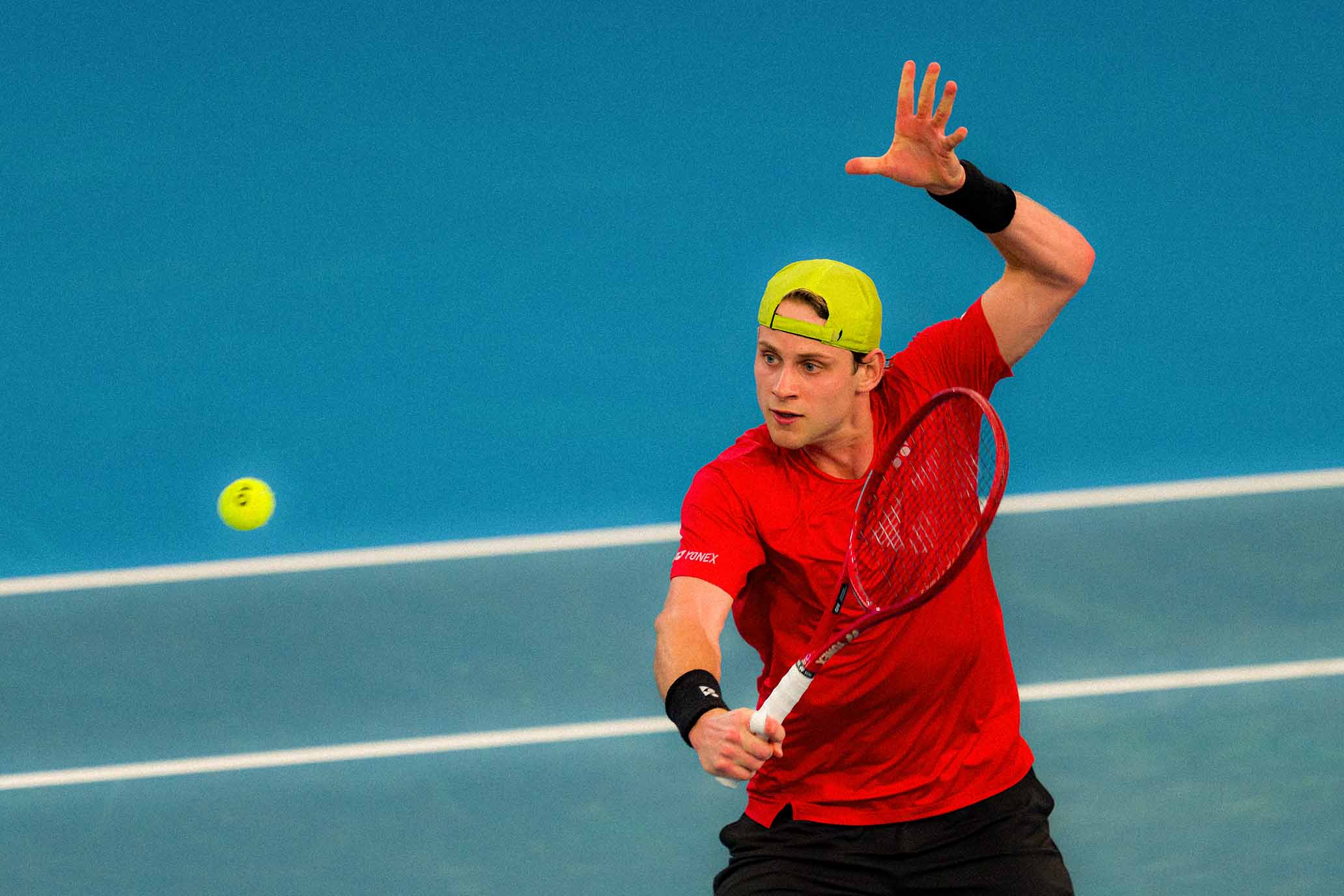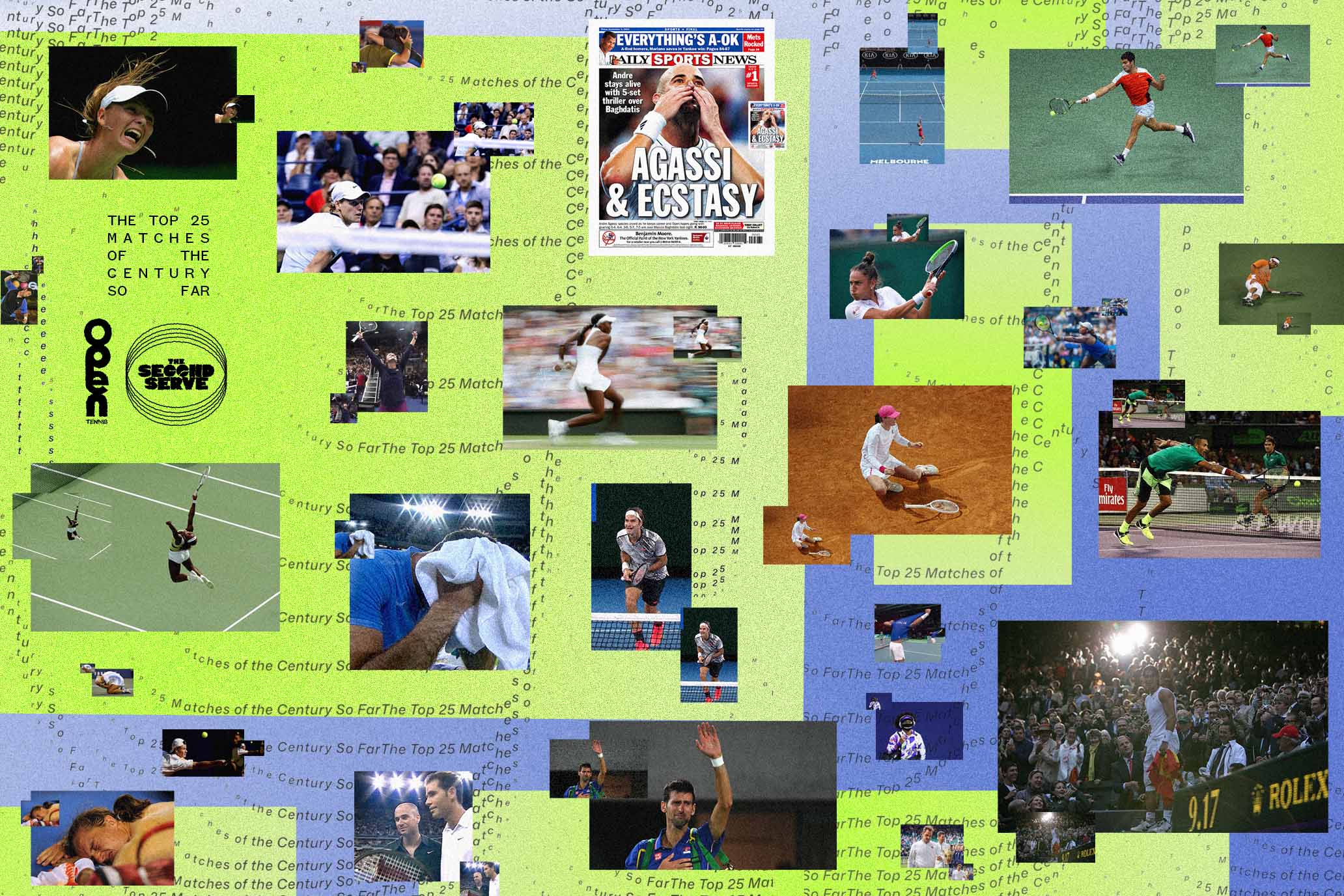Andrey the Giant
Andrey the Giant
Andrey Rublev might just be the last original “NexGen” star standing.
Andrey Rublev might just be the last original “NexGen” star standing.
By Giri NathanJuly 4, 2025
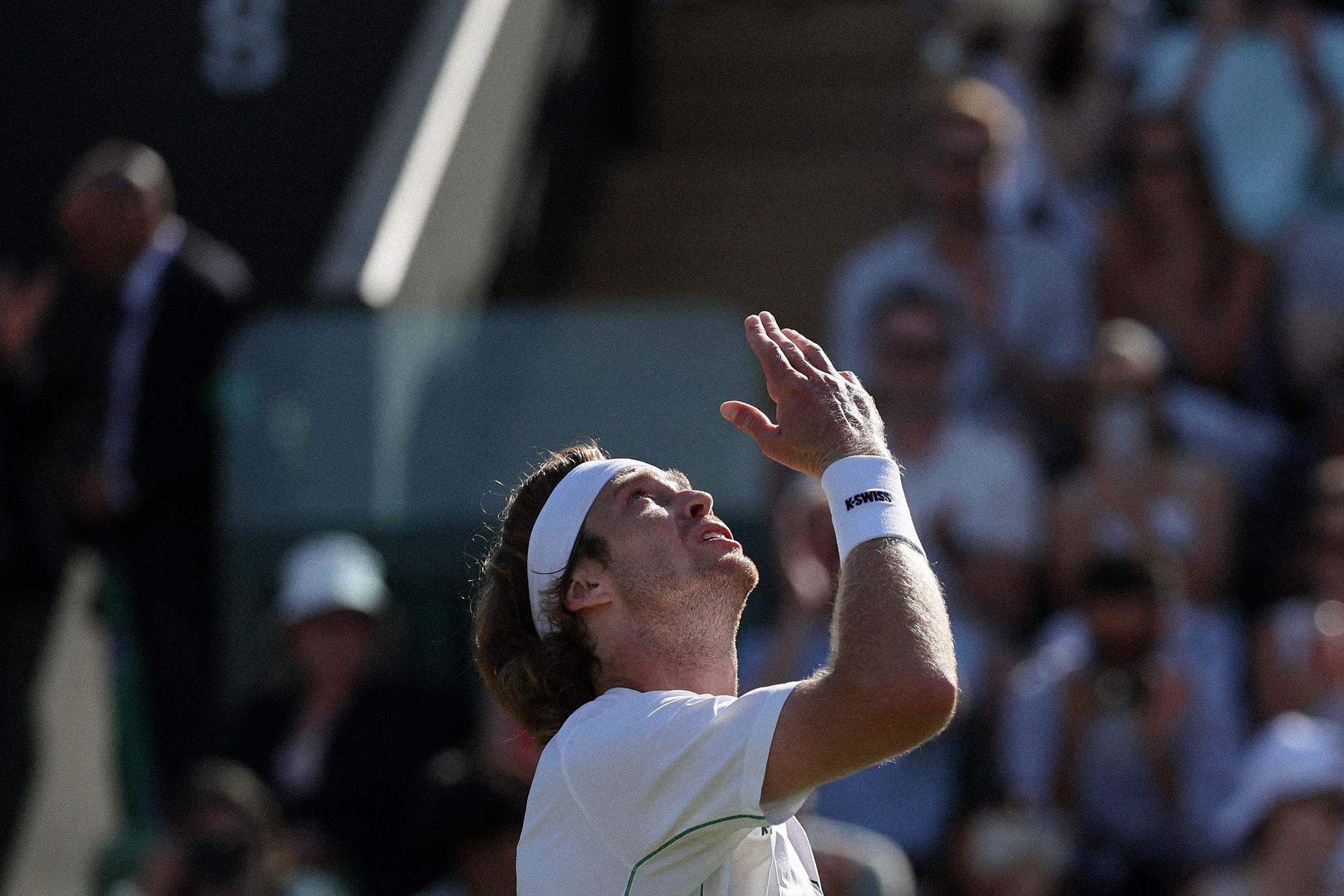
Andrey Rublev looks for inspiration during his second round match at Wimbledon against Lloyd Harris. // Getty
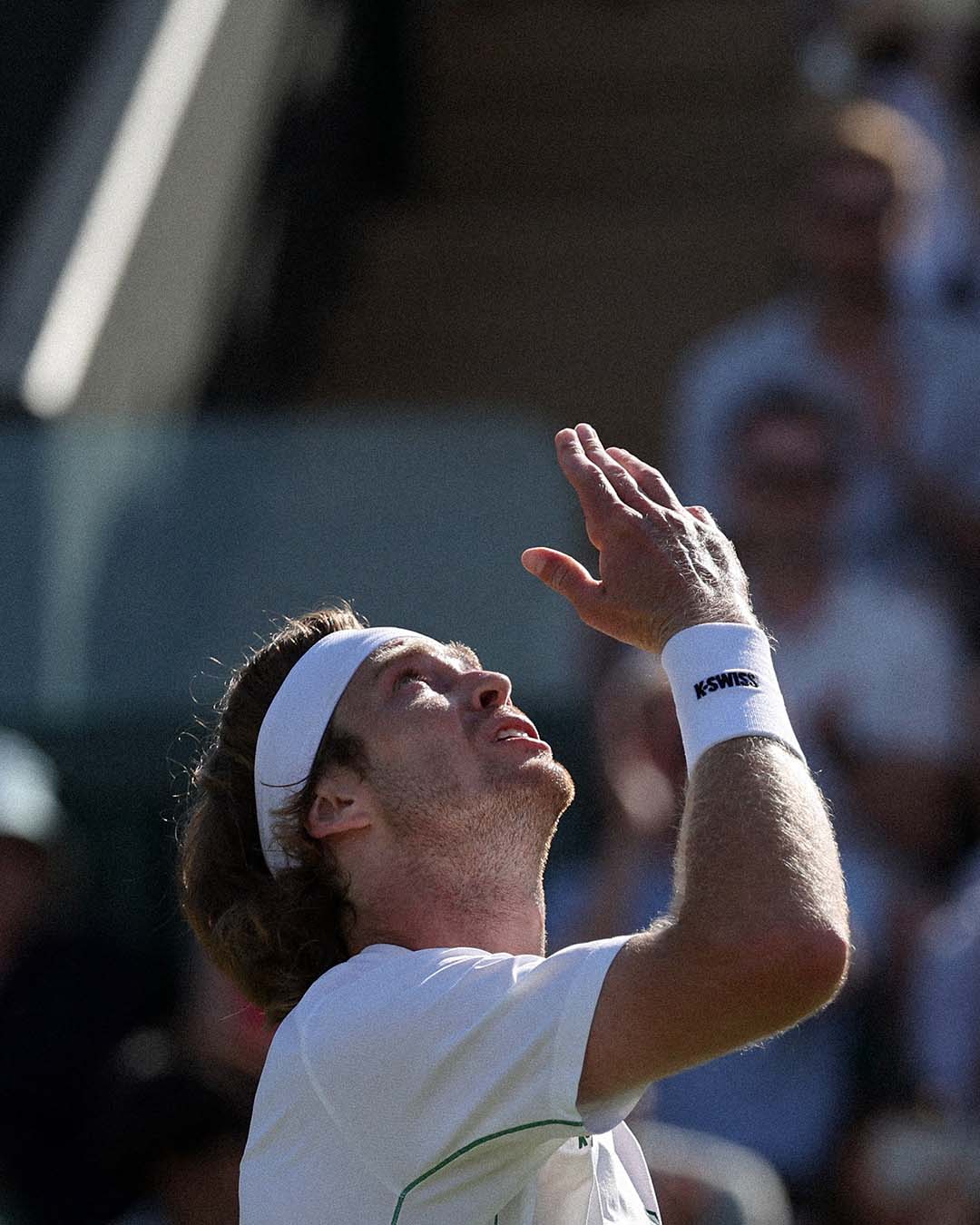
Andrey Rublev looks to the heavens during his second round victory over Lloyd Harris at Wimbledon. // Getty
I used to say to friends, offhand, that Andrey Rublev could win a Slam someday. The draw might open up just so, and the tempest in his mind might be subdued for just seven matches in a row, and that would be it. He had the weapons to pull it off. He just needed some luck, and he needed to stop beating himself up (both figuratively and literally).
I no longer say this.
In the years since, it has become clear that the Slams will be won by two even younger guys, with one old guy sticking around to make everyone work a little harder. And it appeared that Andrey Rublev himself had hit a clear ceiling. He was the first of his age cohort to reach a Slam quarterfinal, way back when he was a 19-year-old, and he’d reached nine more quarterfinals since. But not once had he advanced to the semifinal. He has been stopped by the usual names, plus the occasional surprise: Rafa Nadal, Daniil Medvedev, Stefanos Tsitsipas, Marin Cilic, Frances Tiafoe, Novak Djokovic, Jannik Sinner.
This Wimbledon, however, is looking a little sunnier for Rublev. It seems to me that both of those conditions for success—a decent draw and a sound mind—have been met. The draw was opened up by a first-round bloodbath that claimed 13 seeded players. Some of the victims were guys of Rublev’s generation, who now comprise tennis’ upper middle class, idling in their late 20s, having been leapfrogged by Carlos Alcaraz and Jannik Sinner. (Interestingly, Rublev was the only player on tour to beat both Alcaraz and Sinner in 2024.) Gone in round 1 were Rublev’s peers Daniil Medvedev, Sascha Zverev, and Stefanos Tsitsipas, who lamented a high-rolling opponent, a total lack of joy in life, and a bad back, respectively.
When asked about the mass exodus of seeds, Rublev said, “It make me feel I’m not the only one!” He knows the feeling; he spun out of Wimbledon in the first round last year. During that loss, he whacked his own knee with his racquet seven times in a row and drew blood. It was part of a larger pattern of outbursts that season, which grew concerning even by Rublev’s violent standards. “I was completely lost,” he recalled in an interview this week with Tennis Channel, looking back at last year’s mental struggles. “It was nothing to do with tennis…. I was getting help from every place possible, but in the end the one who helped me a lot was Marat Safin.” In one of the ATP’s most spiritually apt pairings of player and coach, this spring he began working on a trial basis with Safin, who, like him, is a Russian with fearsome baseline power who spent much of his time on court teetering on the cusp of self-destruction. They also share origins in the same tennis club in Moscow, and both moved on to Spain to continue their training.
Rublev explained that meeting Safin for a conversation by the pool in 2024 helped him exit his spirals of anxiety. “Because I was going in circles, all over and all over, and I didn’t know how to go out from this circle—he helped me to realize why everything was happening to me,” Rublev said in a recent documentary produced by the tour. “He showed me the door.”
We’re still in the early days, but it appears that Rublev has emerged from that door much happier. When I saw how giddy Rublev got at the mere mention of Safin’s name, in Monte Carlo, when they were at the start of their collaboration, it already felt like a triumph. Rublev has since resolved to “achieve as best as I can, but in a healthy way, not in a struggle way.” But being a well-adjusted person and being a successful tennis player are not necessarily correlated. Would Rublev’s results suffer, if he didn’t?
So far, so good. He’s had a decent season. This week at Wimbledon he has survived two high-stress, tiebreak-stuffed matches. In his second-round win over the big-serving Lloyd Harris, Rublev even demonstrated rare flair at the net, winning 23 of his 26 forays there. He said that he knew he should be going to the net more often to finish points, but he previously lacked the confidence. Again he credited Safin: “His confidence straightway gives you confidence as well.”
Rublev won a painless third round against Adrian Mannarino on Friday to earn a spot in the fourth round. His likely opponent there, and the only other seed remaining in their quarter, is Alcaraz. If he can somehow find a way through, this could be a reformed Rublev’s best chance yet to make that long-awaited semifinal. He might even enjoy himself.
